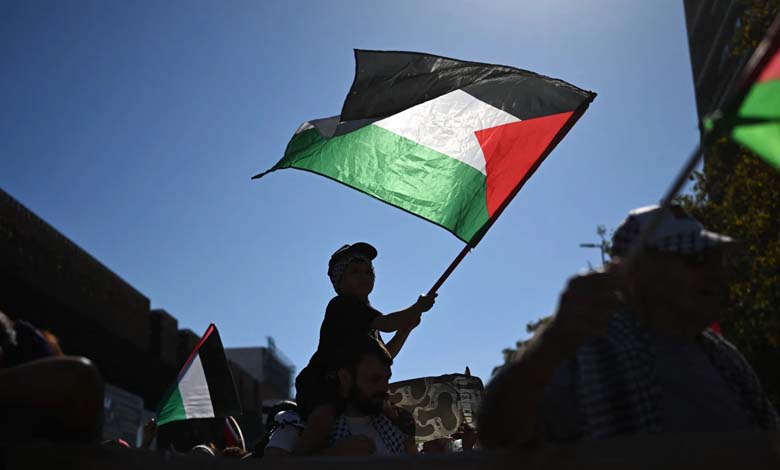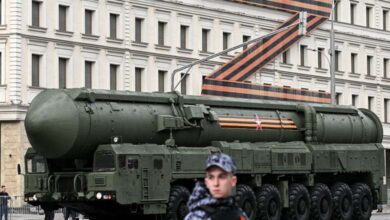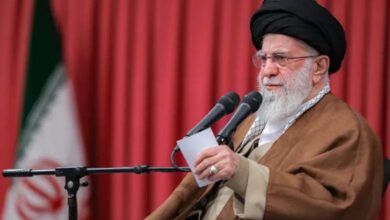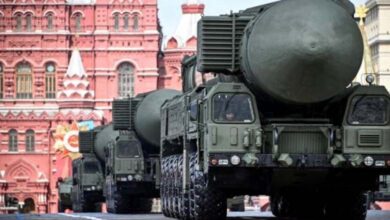Palestine on the Global Map: Countries in Favor and Those Opposed

“The bead has rolled,” says an Arab proverb that captures the recent wave of Western recognitions of the State of Palestine. But the question remains: what does this actually mean?
-
U.S. calls recognition of Palestine symbolic gestures
-
Day of Triple Recognition: Palestine Born from Gaza’s Suffering
In recent days, international recognition of Palestine has multiplied. The United Kingdom, Canada, and Australia announced their decision, soon followed by Portugal.
At the United Nations platform yesterday, France and other countries also recognized the Palestinian state: Belgium, Luxembourg, Malta, Andorra, and the Principality of Monaco.
Here is an overview of the diplomatic recognition of the Palestinian state, proclaimed in exile in Algiers in 1988, through a series of questions and answers.
-
Recognition of the State of Palestine: UAE Sends Strong Diplomatic Messages in Support of Peace and Justice
-
Gaza’s Humanitarian Crisis Shifts Western Diplomacy Toward Recognizing Palestine
First Question:
Who recognizes and who will recognize the State of Palestine?
Answer: Three-quarters of the UN member states.
According to an AFP tally, at least 150 out of the 193 UN member states recognize the State of Palestine.
This figure includes countries that have announced their recognition over the past few days, up until this Tuesday morning.
Algeria was the first to officially recognize the Palestinian state on November 15, 1988, just minutes after the late Yasser Arafat, leader of the Palestine Liberation Organization, unilaterally declared its independence.
-
Widespread Western Call to Recognize Palestine: 15 Countries Lead the Initiative
-
France Clarifies: Our Recognition of Palestine Shows Hamas Is Wrong
In the weeks and months that followed, dozens of countries joined in. Later, between late 2010 and early 2011, another wave of recognitions occurred.
The Israeli war on Gaza, launched in response to Hamas’s attack in southern Israel on October 7, 2023, prompted 13 additional countries to recognize the State of Palestine.
Second Question:
What does recognition mean?
Palestine enjoys broad international recognition, maintains diplomatic missions abroad, and fields teams in international sporting events, including the Olympic Games.
-
Hamas out of power: Macron outlines key conditions for recognizing Palestine
-
Armenia Becomes Fifth Country to Recognize Palestine Since the Outbreak of the Gaza War
With recognition from the UK and France, Palestine now enjoys the support of 4 of
the 5 permanent members of the UN Security Council, since China and Russia recognized it back in 1988.
This leaves the United States, Israel’s staunchest ally, isolated as the sole opposing major power.
However, due to the prolonged conflict with Israel, the Palestinian state lacks internationally agreed borders, a capital, or an army.
Because of Israel’s military occupation of the West Bank, the Palestinian Authority — established after the peace accords of the 1990s — does not exercise full control over its land or population. In Gaza, still under Israeli occupation, a devastating war is ongoing.
-
Slovenia Becomes Fourth European Country to Recognize Palestine Amid Gaza War
-
The only way to liberate Palestine
Third Question:
What is the difference between state recognition and full UN membership?
Recognition means that a country or group of countries accepts the legitimacy of a political entity as a sovereign state.
This recognition can be symbolic or political and does not automatically grant full international rights or institutions.
For example, while Palestine is recognized by about three-quarters of the world’s states, this does not mean it has full UN membership.
Full UN membership entails official state status, voting rights in the General Assembly, and full compliance with UN obligations. This requires approval by the General Assembly and the Security Council.
To date, Palestine is not a full UN member but has held the status of “observer state” since 2012.
-
Abbas to US Envoy : Palestine able to Achieve Just, Comprehensive Peace
-
UAE gravely concerned about situation in Palestine and calls for ceasefire
Fourth Question:
Which countries do not recognize the State of Palestine?
Answer: At least 40 countries, including Israel, the United States, and several allies.
- Asia: Japan, South Korea, Singapore
- Africa: Cameroon
- Latin America: Panama
- Oceania: most countries
Europe remains the most divided continent.
Until the mid-2010s, only Turkey and former Soviet bloc states recognized Palestine.
Even today, some Eastern European countries, such as Hungary and the Czech Republic, do not recognize a Palestinian state bilaterally.
Until recently, Western and Northern European states were united in their refusal, with the exception of Sweden, which recognized Palestine in 2014.
But the Gaza war has turned things upside down. Norway, Spain, Ireland, and Slovenia recognized the State of Palestine in 2024, followed by the UK and Portugal last Sunday.
According to AFP, Italy and Germany currently have no plans to recognize the Palestinian state.












